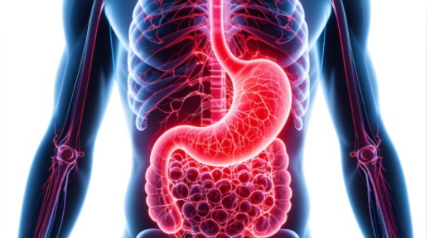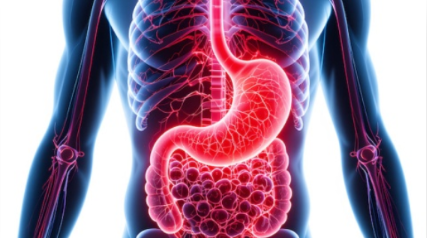Healthy Mouth-Healthy Body Insights by Donna: Periodontal Disease-Stomach Cancer
September 25, 2025
September 25, 2025
Barrington Smiles Dental Hygienist: Donna Grzegorek Shares research on the Connection between Gum disease bacteria and stomach Cancer

Most people know that gum disease (periodontal disease) can affect their oral health, leading to bleeding gums, loose teeth, and even tooth loss. What many don’t realize is that the bacteria that cause gum disease don’t stay confined to the mouth—they can travel through the bloodstream and impact overall health in surprising ways.
The industry is aware that periodontal bacteria have been linked to diabetes, heart disease, strokes, pancreatic cancer, colon cancer, Alzheimer’s, Parkinson’s and pre-term low birth weight babies.
Recent scientific studies have revealed a concerning link between certain periodontal pathogens (harmful bacteria found in gum disease) and an increased risk of stomach cancer. Researchers have discovered that people with advanced gum disease often carry higher levels of bacteria such as Fusobacterium nucleatum and Porphyromonas gingivalis. These bacteria don’t just damage gum tissue—they may also influence inflammation and changes in cells that increase cancer risk in the stomach.

Why does this matter to you?
The good news: Gum disease is preventable and treatable. Daily brushing, flossing and mouthwash use, combined with professional dental cleanings and exams, are your best defense. By controlling oral bacteria, you’re not just protecting your smile—you’re also reducing risks to your overall health.
Takeaway: Healthy gums are more than a cosmetic concern; they are an important part of a healthy body. If you’ve noticed bleeding gums, persistent bad breath, or changes in your bite, don’t wait—schedule a dental evaluation. Early action could protect both your smile and your long-term health.
If you have any questions or would like to see research from the Swiss study, please feel free to contact me at Barrington Smiles. 847-382-5511 – BarringtonSmiles1@gmail.com
Donna Grzegorek BS, RDH, PHDH, FADHA (Your healthy-smile healthy-body advocate)
- Gum disease is one of the most common chronic infections worldwide, often painless in its early stages.
- The bacteria associated with gum disease can enter the bloodstream and travel to distant organs, including the stomach.
- Studies suggest that people with untreated gum disease may be more vulnerable to serious conditions, including stomach cancer.
The good news: Gum disease is preventable and treatable. Daily brushing, flossing and mouthwash use, combined with professional dental cleanings and exams, are your best defense. By controlling oral bacteria, you’re not just protecting your smile—you’re also reducing risks to your overall health.
Takeaway: Healthy gums are more than a cosmetic concern; they are an important part of a healthy body. If you’ve noticed bleeding gums, persistent bad breath, or changes in your bite, don’t wait—schedule a dental evaluation. Early action could protect both your smile and your long-term health.
If you have any questions or would like to see research from the Swiss study, please feel free to contact me at Barrington Smiles. 847-382-5511 – BarringtonSmiles1@gmail.com
Donna Grzegorek BS, RDH, PHDH, FADHA (Your healthy-smile healthy-body advocate)














